In our first panel, a group of experts discussed how patient navigation services can improve access to quality cancer care and explored the challenges associated with delivering these services.
Sharon Rivera Sanchez, a cancer survivor and member of NCCS’s Cancer Policy and Advocacy Team, leveraged her position as the founder of Saving Pennies 4 a Cure and Trials of Color to survey cancer survivors in her network about their personal experiences with patient navigation. During her treatment, Ms. Rivera Sanchez received limited assistance from a patient navigator who helped her schedule a few appointments. Of the cancer survivors she surveyed, many had never heard of patient navigators or had been referred to navigation services but had never been contacted. Others had to seek out navigators whose services were fortunately covered by their insurance. However, they all thought patient navigation services were or would have been helpful during their treatment.
The panelists discussed significant needs cancer patients have, including understanding treatment options and the different specialists involved, accessing support for psychosocial and financial needs, and finding resources to help with food insecurity, transportation, and housing. Dr. Kashyap Patel, CEO of Carolina Blood and Cancer Care and immediate past President of the Community Oncology Alliance, raised concerns about the fragmentation of the health system and the isolation patients experience when they are lost in the system. He adopted Mahatma Gandhi’s principle to become the “voice for the voiceless,” which he tries to do through navigation. He described No One Left Alone, the nonprofit organization he founded to help provide his patients with housing, employment, and health insurance assistance. Because of our fragmented system, he says providers often do not know about the availability of community resources for patients. He said helping patients access these resources “is not rocket science. The countries that have invested heavily in the social safety network – which is almost like the navigation system – they have about five to seven years more life expectancy compared to the US…social determinants of health actually dictate outcome.” Members of the panel stressed the need for a multi-level, or team, approach to address barriers to care at multiple levels. Dr. Bonny Morris, Senior Director of Patient Navigation at the American Cancer Society and a former oncology nurse navigator, reflected on her own challenges caring for her father who was diagnosed with metastatic cancer while living in a rural community. She said, despite her knowledge, connections, and resources, she needed support from a team of navigators, including a rural and financial navigator, to effectively address her father’s needs.
Additionally, the panelists collectively stressed the importance of building trust in communities. Ms. Rivera Sanchez called for providers to partner with survivors to help bridge the gap between health systems and communities. She said survivors are in a better position to reach and build trust with the community while also bringing hope to other cancer patients. Dr. Robert Winn, the Director and Lipman Chair in Oncology at VCU Massey Cancer Center, suggested establishing stronger connections and increasing community involvement by developing activation programs within communities. Health systems can provide jobs to trusted members in the community who others could call to “activate” the patient navigation process. He said, “the investment of building trustworthiness is going to take big, bold actions and will at the end of the day save us more than it will cost… even if you have the miracle drug, they may not take it from you because they don’t trust you, but they may take it from someone else.”
Finally, members of the panel discussed various models of navigation to address these needs, as well as how to pay for navigation and make it sustainable. Reimbursement, they said, will be a key issue. Dr. Patel, whose community practice does not receive federal funding, discussed his use of the Chronic Care Management code, a reimbursable code that helps his practice address his patients’ health-related social needs through local community resources.

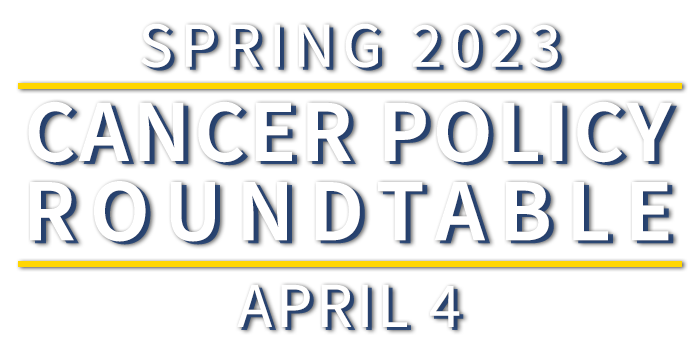
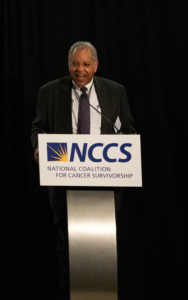
 Otis W. Brawley, MD is a globally-recognized expert in cancer prevention and control. He has worked to reduce overscreening of medical conditions, which has revolutionized patient treatment by increasing quality of life and reducing health disparities. Brawley’s research focuses on developing cancer screening strategies and ensuring their effectiveness. He has championed efforts to decrease smoking and implement other lifestyle risk reduction programs, as well as to provide critical support to cancer patients and concentrate cancer control efforts in areas where they could be most effective. Brawley currently leads a broad interdisciplinary research effort on cancer health disparities at the Bloomberg School of Public Health and the Johns Hopkins Kimmel Cancer Center, striving to close racial, economic, and social disparities in the prevention, detection, and treatment of cancer in the United States and worldwide. He also directs community outreach programs for underserved populations throughout Maryland.
Otis W. Brawley, MD is a globally-recognized expert in cancer prevention and control. He has worked to reduce overscreening of medical conditions, which has revolutionized patient treatment by increasing quality of life and reducing health disparities. Brawley’s research focuses on developing cancer screening strategies and ensuring their effectiveness. He has championed efforts to decrease smoking and implement other lifestyle risk reduction programs, as well as to provide critical support to cancer patients and concentrate cancer control efforts in areas where they could be most effective. Brawley currently leads a broad interdisciplinary research effort on cancer health disparities at the Bloomberg School of Public Health and the Johns Hopkins Kimmel Cancer Center, striving to close racial, economic, and social disparities in the prevention, detection, and treatment of cancer in the United States and worldwide. He also directs community outreach programs for underserved populations throughout Maryland.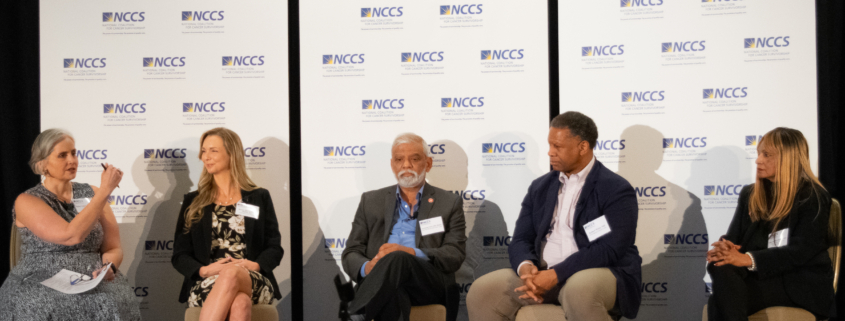
 Bonny Morris, PhD is Senior Director for Patient Navigation at the American Cancer Society. She has a clinical background as an oncology registered nurse and as a certified oncology nurse navigator, a Master of Public Health concentrating in epidemiology, and a doctoral degree in Social and Behavioral Sciences. She was previously Chief Executive Officer of the non-profit Take the Fight to Cancer, training and demonstrating the sustainability of utilizing student volunteers to support nonclinical navigation. Her research has been funded by the National Cancer Institute and focuses on multi-level strategies integrating digital health and patient navigation to optimize cancer care delivery and improve cancer survivorship with the cross-cutting theme of reducing health disparities. Dr. Morris joined the American Cancer Society in October 2022, leading the development of ACS CARES (Community Access to Resources, Education, and Support). This multi-channel approach (app, virtual volunteer support, telephonic staff support, in-person volunteer support) will fill a critical gap in cancer care by providing those affected by cancer with direct, individualized, non-clinical navigation assistance delivering timely information to reduce distress, resources to mitigate barriers to care, and emotional support across the cancer continuum. Dr. Morris is also leading the Navigation Task Team for a new pediatric cancer project, aligned with the U.S. Federal Cancer Moonshot, CC-DIRECT (Childhood Cancer – Data Integration for Research, Education, Care and Trials). This work is conducted through a coalition of organizations, including the National Cancer Institute, American Cancer Society, American Society of Clinical Oncology, Children’s Oncology Group, the Alliance for Clinical Trials in Oncology, the Office of the National Coordinator, and MITRE.
Bonny Morris, PhD is Senior Director for Patient Navigation at the American Cancer Society. She has a clinical background as an oncology registered nurse and as a certified oncology nurse navigator, a Master of Public Health concentrating in epidemiology, and a doctoral degree in Social and Behavioral Sciences. She was previously Chief Executive Officer of the non-profit Take the Fight to Cancer, training and demonstrating the sustainability of utilizing student volunteers to support nonclinical navigation. Her research has been funded by the National Cancer Institute and focuses on multi-level strategies integrating digital health and patient navigation to optimize cancer care delivery and improve cancer survivorship with the cross-cutting theme of reducing health disparities. Dr. Morris joined the American Cancer Society in October 2022, leading the development of ACS CARES (Community Access to Resources, Education, and Support). This multi-channel approach (app, virtual volunteer support, telephonic staff support, in-person volunteer support) will fill a critical gap in cancer care by providing those affected by cancer with direct, individualized, non-clinical navigation assistance delivering timely information to reduce distress, resources to mitigate barriers to care, and emotional support across the cancer continuum. Dr. Morris is also leading the Navigation Task Team for a new pediatric cancer project, aligned with the U.S. Federal Cancer Moonshot, CC-DIRECT (Childhood Cancer – Data Integration for Research, Education, Care and Trials). This work is conducted through a coalition of organizations, including the National Cancer Institute, American Cancer Society, American Society of Clinical Oncology, Children’s Oncology Group, the Alliance for Clinical Trials in Oncology, the Office of the National Coordinator, and MITRE.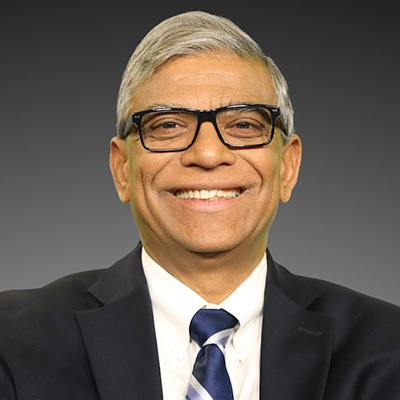 Kashyap Patel, MD, is the CEO of Carolina Blood and Cancer Care Associates. Dr. Patel is a full time practicing medical oncologist, board certified in Hematology, Oncology, and Internal Medicine. He is immediate past president for the Community Oncology Alliance (COA). He is also chairman of the newly formed Biosimilars committee for the COA. He is a chair elect for the clinical affairs and trustee for the Association of Community Cancer Centers (ACCC). He is also a member of the CPC committee for the ASCO and NCQA. He has been an advisor for the large payers including DHHS (SC), Palmetto GBA. He also serves on an advisory board for Medicaid HMOs. He has a special interest in health care policy and economics and the end-of-life care. He recently joined International Oncology Network as medical director. He has expertise in Value Based Care and has successfully led Oncology Care Model pilots with two payers including with CMMI (new division of CMS).
Kashyap Patel, MD, is the CEO of Carolina Blood and Cancer Care Associates. Dr. Patel is a full time practicing medical oncologist, board certified in Hematology, Oncology, and Internal Medicine. He is immediate past president for the Community Oncology Alliance (COA). He is also chairman of the newly formed Biosimilars committee for the COA. He is a chair elect for the clinical affairs and trustee for the Association of Community Cancer Centers (ACCC). He is also a member of the CPC committee for the ASCO and NCQA. He has been an advisor for the large payers including DHHS (SC), Palmetto GBA. He also serves on an advisory board for Medicaid HMOs. He has a special interest in health care policy and economics and the end-of-life care. He recently joined International Oncology Network as medical director. He has expertise in Value Based Care and has successfully led Oncology Care Model pilots with two payers including with CMMI (new division of CMS).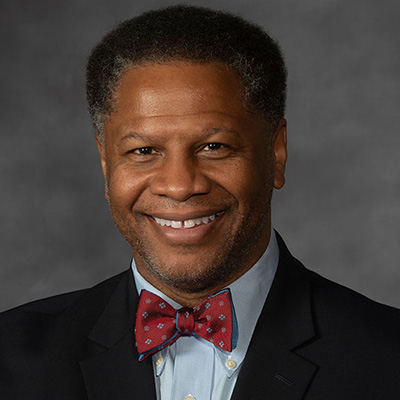 As director of Virginia Commonwealth University Massey Cancer Center, Robert A. Winn, MD, is leading the nation in establishing a 21st-century model for promoting diversity, equity and inclusion in the oncology workforce, optimizing cancer health care outcomes for all and spearheading interdisciplinary approaches to cancer disparities research. Just the fourth director of Massey since its 1975 National Cancer Institute designation, Winn oversees a center comprised of nearly 150 scientists and clinical investigators. Leading by example, Winn is nationally recognized for his community engagement efforts in promoting new approaches to building trust among populations previously disenfranchised from healthcare or excluded or abused in research. Most recently, during the pandemic, Winn launched a nationally heralded Facts & Faith Fridays conversation series, an initiative that creates a dialogue between science, community and faith leaders to combat medical mistrust within the African American community. Hosted guests have included Jill Biden, EdD, Anthony Fauci, MD, Ned Sharpless, MD, and Francis Collins, MD, PhD. Winn is also the namesake of the Robert A. Winn Diversity in Clinical Trials Award Program, a $114 million training and education program in partnership with the Bristol Myers Squibb Foundation.
As director of Virginia Commonwealth University Massey Cancer Center, Robert A. Winn, MD, is leading the nation in establishing a 21st-century model for promoting diversity, equity and inclusion in the oncology workforce, optimizing cancer health care outcomes for all and spearheading interdisciplinary approaches to cancer disparities research. Just the fourth director of Massey since its 1975 National Cancer Institute designation, Winn oversees a center comprised of nearly 150 scientists and clinical investigators. Leading by example, Winn is nationally recognized for his community engagement efforts in promoting new approaches to building trust among populations previously disenfranchised from healthcare or excluded or abused in research. Most recently, during the pandemic, Winn launched a nationally heralded Facts & Faith Fridays conversation series, an initiative that creates a dialogue between science, community and faith leaders to combat medical mistrust within the African American community. Hosted guests have included Jill Biden, EdD, Anthony Fauci, MD, Ned Sharpless, MD, and Francis Collins, MD, PhD. Winn is also the namesake of the Robert A. Winn Diversity in Clinical Trials Award Program, a $114 million training and education program in partnership with the Bristol Myers Squibb Foundation.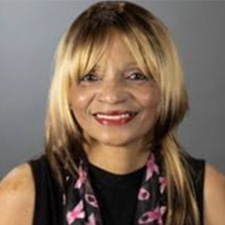 Sharon Rivera Sanchez is a triple-negative breast cancer survivor who turned her fight into a burning desire to empower other breast cancer patients. Triple-negative breast cancer (TNBC) is a rare form of breast cancer where the tumor does not have any of the three most common receptors that fuel breast cancer growth. This makes TNBC difficult to treat since the tumor can’t be directly targeted. Sharon took part in clinical trial studies with the Pink Lotus Foundation and University of PENN, Abramson Cancer Center to detect recurrences sooner for other breast cancer patients.
Sharon Rivera Sanchez is a triple-negative breast cancer survivor who turned her fight into a burning desire to empower other breast cancer patients. Triple-negative breast cancer (TNBC) is a rare form of breast cancer where the tumor does not have any of the three most common receptors that fuel breast cancer growth. This makes TNBC difficult to treat since the tumor can’t be directly targeted. Sharon took part in clinical trial studies with the Pink Lotus Foundation and University of PENN, Abramson Cancer Center to detect recurrences sooner for other breast cancer patients.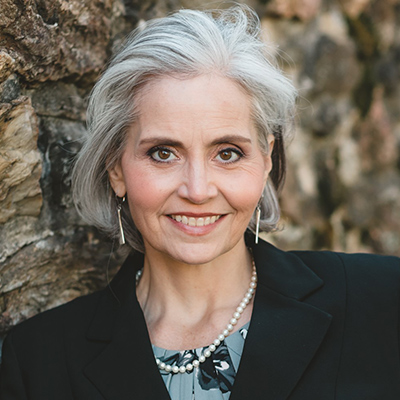 Shelley Fuld Nasso, MPP has served as Chief Executive Officer of NCCS since October 2013. Prior to joining NCCS, Shelley served in leadership roles at Susan G. Komen, where she leveraged Komen’s grassroots network in Washington, DC, and in state capitals. Under her leadership, Komen successfully secured $80 million in state funding for cancer screening and treatment for uninsured and under-insured women.
Shelley Fuld Nasso, MPP has served as Chief Executive Officer of NCCS since October 2013. Prior to joining NCCS, Shelley served in leadership roles at Susan G. Komen, where she leveraged Komen’s grassroots network in Washington, DC, and in state capitals. Under her leadership, Komen successfully secured $80 million in state funding for cancer screening and treatment for uninsured and under-insured women.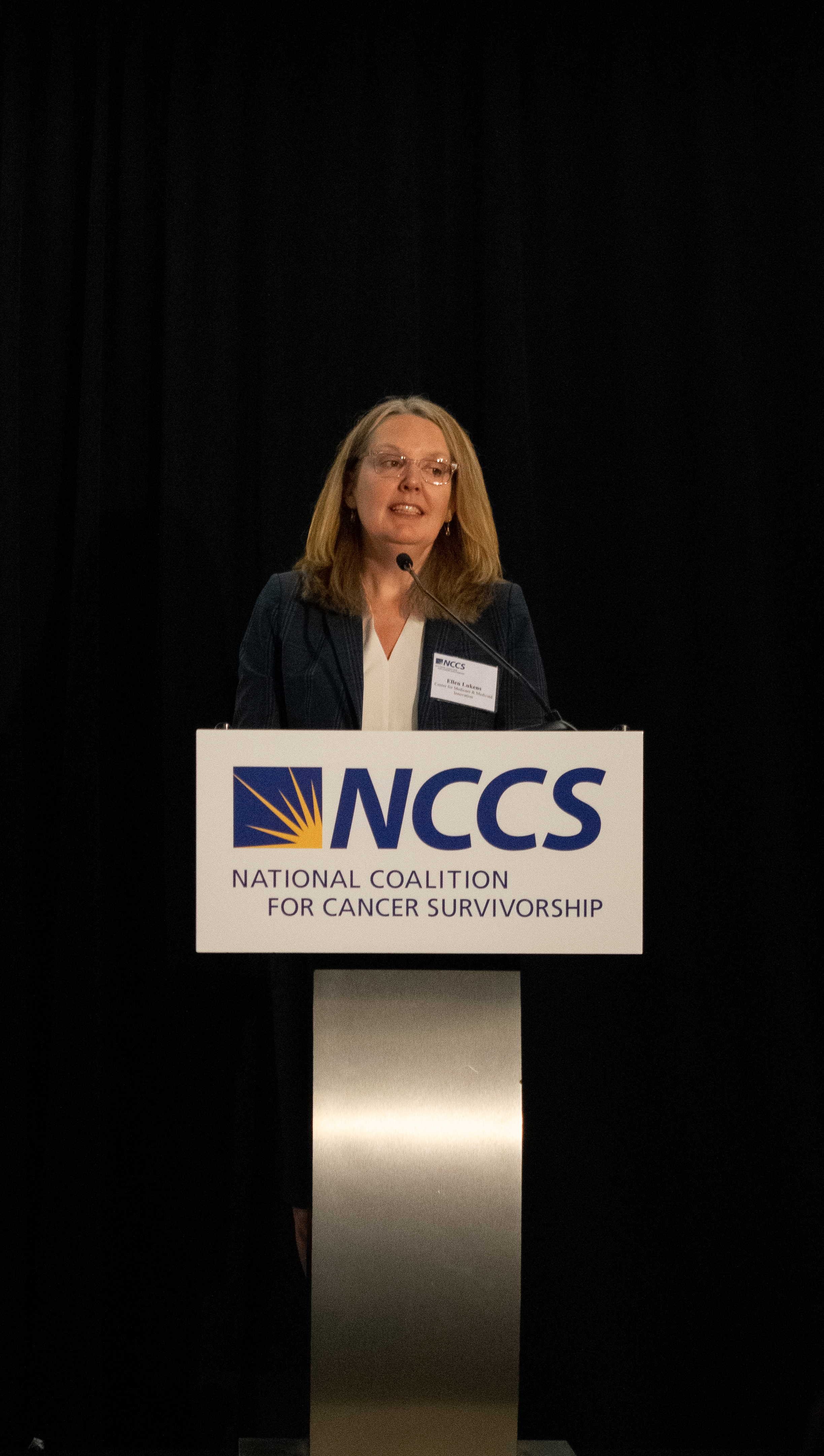
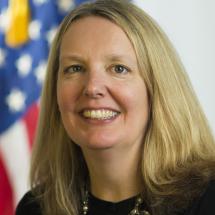 Ellen Lukens is the Deputy Director of the Center for Medicare & Medicaid Innovation (CMS Innovation Center). In this role, Ms. Lukens leads policy development at the CMS Innovation Center. Ms. Lukens has deep experience both within and outside the government tackling complex health policy issues. Prior to this role, Ellen served as the Group Director of the Policy and Programs Group (PPG) within the CMS Innovation Center, where she led the team that provides cross-cutting support for Center-wide policy and portfolio management, including related to the Advanced Payment Model (APM) portion of the Medicare and Children’s Health Insurance Program Reauthorization Act of 2015 (MACRA). Ms. Lukens also served as the Division Director for Ambulatory Payment models, where she led development of physician-focused specialty care models, including the Oncology Care Model. Prior to joining CMS, Ms. Lukens led the Provider Practice at Avalere Health. In that role, she worked with hospitals, physician groups, and post-acute care providers on many policy and strategy issues, including developing analytic tools to improve provider performance and to evaluate participation in CMMI models. Prior to Avalere, Ms. Lukens held policy roles in hospital associations. Ms. Lukens began her health policy career as Presidential Management Fellow at CMS. She earned her bachelor’s degree from Northwestern University and a Master of Public Health from the University of Michigan.
Ellen Lukens is the Deputy Director of the Center for Medicare & Medicaid Innovation (CMS Innovation Center). In this role, Ms. Lukens leads policy development at the CMS Innovation Center. Ms. Lukens has deep experience both within and outside the government tackling complex health policy issues. Prior to this role, Ellen served as the Group Director of the Policy and Programs Group (PPG) within the CMS Innovation Center, where she led the team that provides cross-cutting support for Center-wide policy and portfolio management, including related to the Advanced Payment Model (APM) portion of the Medicare and Children’s Health Insurance Program Reauthorization Act of 2015 (MACRA). Ms. Lukens also served as the Division Director for Ambulatory Payment models, where she led development of physician-focused specialty care models, including the Oncology Care Model. Prior to joining CMS, Ms. Lukens led the Provider Practice at Avalere Health. In that role, she worked with hospitals, physician groups, and post-acute care providers on many policy and strategy issues, including developing analytic tools to improve provider performance and to evaluate participation in CMMI models. Prior to Avalere, Ms. Lukens held policy roles in hospital associations. Ms. Lukens began her health policy career as Presidential Management Fellow at CMS. She earned her bachelor’s degree from Northwestern University and a Master of Public Health from the University of Michigan.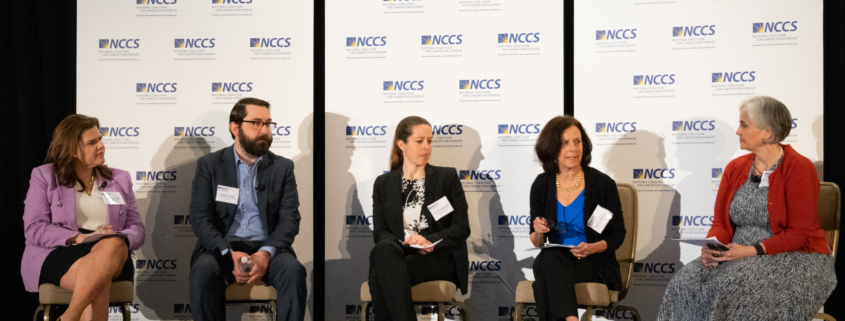
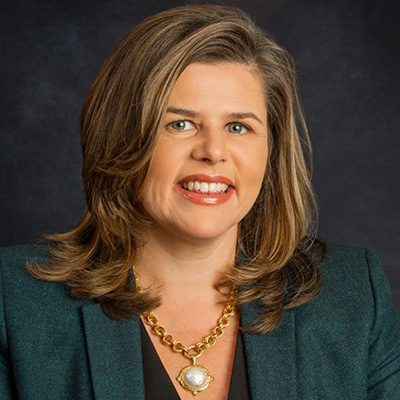 Lori M. Reilly is chief operating officer at the Pharmaceutical Research and Manufacturers of America (PhRMA), providing executive level management, leadership and strategic direction for the organization. In this role, Ms. Reilly oversees PhRMA’s advocacy activities, including its federal, state and international government affairs and alliance development work. Ms. Reilly works across PhRMA to develop and advocate for practical policy solutions that will lower costs for patients.
Lori M. Reilly is chief operating officer at the Pharmaceutical Research and Manufacturers of America (PhRMA), providing executive level management, leadership and strategic direction for the organization. In this role, Ms. Reilly oversees PhRMA’s advocacy activities, including its federal, state and international government affairs and alliance development work. Ms. Reilly works across PhRMA to develop and advocate for practical policy solutions that will lower costs for patients.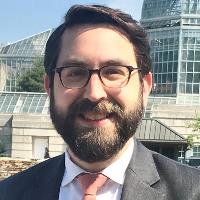 Brian Connell is the Executive Director of Federal Affairs for The Leukemia & Lymphoma Society (LLS). Over his 15-year career in Washington, Brian has secured legislative and regulatory changes that have expanded patient access to health care and made that care safer, more effective, and more sustainable. At LLS, Brian leads a team of federal lobbyists and policy professionals who advocate for meaningful reforms in federal policies, across Congress, the administration, and the courts.
Brian Connell is the Executive Director of Federal Affairs for The Leukemia & Lymphoma Society (LLS). Over his 15-year career in Washington, Brian has secured legislative and regulatory changes that have expanded patient access to health care and made that care safer, more effective, and more sustainable. At LLS, Brian leads a team of federal lobbyists and policy professionals who advocate for meaningful reforms in federal policies, across Congress, the administration, and the courts.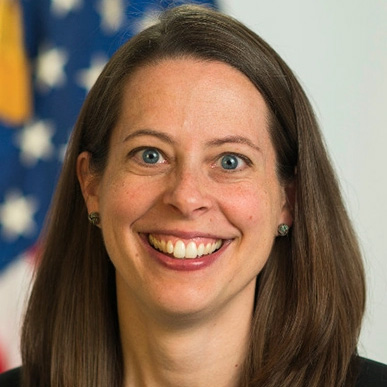 Lara Strawbridge is the Deputy Director for Policy in the newly formed Medicare Drug Rebate and Negotiations Group in the Center for Medicare. In this role, Ms. Strawbridge helps to lead the policy development and implementation of the Medicare Prescription Drug Inflation Rebate Program and the Medicare Drug Price Negotiation Program, as created by the Inflation Reduction Act of 2022. Previously Ms. Strawbridge was Director of the Division of Ambulatory Payment Models in the Patient Care Models Group in the Center for Medicare and Medicaid Innovation (CMMI), where she led CMS’s efforts on Part B drug models as well as physician specialty models, such as the Oncology Care Model, Enhancing Oncology Model, and Radiation Oncology Model. Prior to taking on the Division Director role, Ms. Strawbridge led the Oncology Care Model and also previously worked in CMMI’s Research and Rapid-Cycle Evaluation Group. Ms. Strawbridge began her career in health policy and research at the Institute of Medicine and previously was a teacher in Hertfordshire, England, and Washington, DC. Ms. Strawbridge earned her MPH from Johns Hopkins Bloomberg School of Public Health.
Lara Strawbridge is the Deputy Director for Policy in the newly formed Medicare Drug Rebate and Negotiations Group in the Center for Medicare. In this role, Ms. Strawbridge helps to lead the policy development and implementation of the Medicare Prescription Drug Inflation Rebate Program and the Medicare Drug Price Negotiation Program, as created by the Inflation Reduction Act of 2022. Previously Ms. Strawbridge was Director of the Division of Ambulatory Payment Models in the Patient Care Models Group in the Center for Medicare and Medicaid Innovation (CMMI), where she led CMS’s efforts on Part B drug models as well as physician specialty models, such as the Oncology Care Model, Enhancing Oncology Model, and Radiation Oncology Model. Prior to taking on the Division Director role, Ms. Strawbridge led the Oncology Care Model and also previously worked in CMMI’s Research and Rapid-Cycle Evaluation Group. Ms. Strawbridge began her career in health policy and research at the Institute of Medicine and previously was a teacher in Hertfordshire, England, and Washington, DC. Ms. Strawbridge earned her MPH from Johns Hopkins Bloomberg School of Public Health.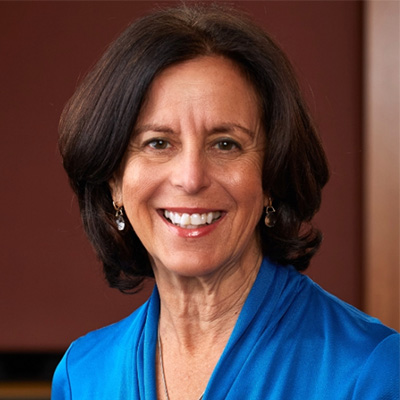 As senior vice president of KFF and Executive Director of KFF’s Program on Medicare Policy, Tricia Neuman oversees KFF’s policy analysis and research pertaining to Medicare, and health coverage and care for aging Americans and people with disabilities. A widely cited Medicare policy expert, Dr. Neuman focuses on topics such as the health and economic security of older adults, the role of Medicare Advantage plans, Medicare and out-of-pocket spending trends, prescription drug costs, payment and delivery system reforms, and policy options to strengthen Medicare for the future. She has authored numerous papers pertaining to Medicare, has been invited several times to present expert testimony before Congressional committees, and has appeared and been quoted as an independent expert by major, national media outlets. Before joining KFF in 1995, Dr. Neuman served on the professional staff of the Ways and Means Subcommittee on Health in the U.S. House of Representatives and on the staff of the U.S. Senate Special Committee on Aging working on health and long-term care issues. Dr. Neuman received a Doctorate of Science degree in health policy and management and a Masters of Science degree in health finance and management from the Johns Hopkins School of Public Health. She received her Bachelor’s degree from Wesleyan University.
As senior vice president of KFF and Executive Director of KFF’s Program on Medicare Policy, Tricia Neuman oversees KFF’s policy analysis and research pertaining to Medicare, and health coverage and care for aging Americans and people with disabilities. A widely cited Medicare policy expert, Dr. Neuman focuses on topics such as the health and economic security of older adults, the role of Medicare Advantage plans, Medicare and out-of-pocket spending trends, prescription drug costs, payment and delivery system reforms, and policy options to strengthen Medicare for the future. She has authored numerous papers pertaining to Medicare, has been invited several times to present expert testimony before Congressional committees, and has appeared and been quoted as an independent expert by major, national media outlets. Before joining KFF in 1995, Dr. Neuman served on the professional staff of the Ways and Means Subcommittee on Health in the U.S. House of Representatives and on the staff of the U.S. Senate Special Committee on Aging working on health and long-term care issues. Dr. Neuman received a Doctorate of Science degree in health policy and management and a Masters of Science degree in health finance and management from the Johns Hopkins School of Public Health. She received her Bachelor’s degree from Wesleyan University.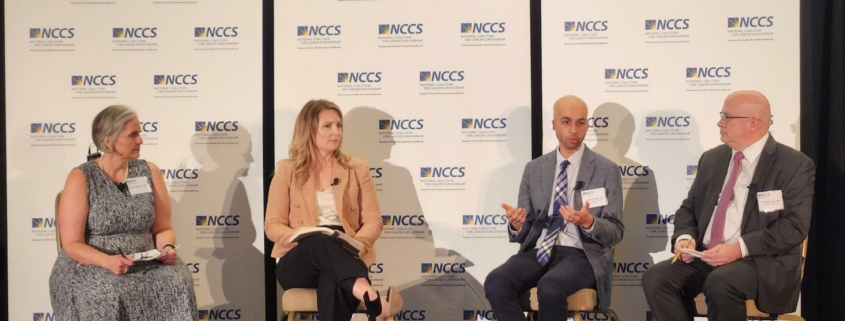
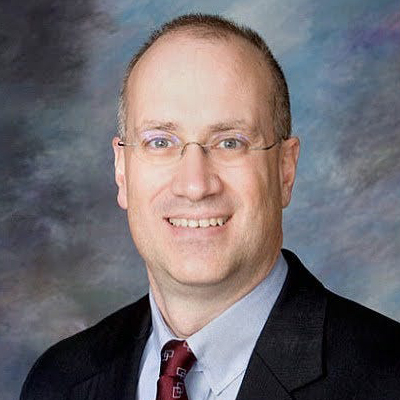 William Flood, MD is the Senior Medical Director for the Cancer and Specialty Guidance Program with Optum Health Solutions; this program assures quality of the chemotherapy, radiation therapy, and specialty medicine care for over 30 million insured lives. He is a two-time graduate of Penn State (BS, MS) and the Temple University School of Medicine (MD). He completed his postgraduate training at the Duke University Medical Center (internal medicine) and the Johns Hopkins Oncology Center (medical oncology) and served on the Johns Hopkins Oncology Center and the Penn State College of Medicine. He also guided the development of Eviti, a cancer/specialty drug value and decision support platform, from start up to serving over 30 million insureds within NantHealth. He lives in central Pennsylvania with his wife and his daughter away in college, while his son has recently “launched.”
William Flood, MD is the Senior Medical Director for the Cancer and Specialty Guidance Program with Optum Health Solutions; this program assures quality of the chemotherapy, radiation therapy, and specialty medicine care for over 30 million insured lives. He is a two-time graduate of Penn State (BS, MS) and the Temple University School of Medicine (MD). He completed his postgraduate training at the Duke University Medical Center (internal medicine) and the Johns Hopkins Oncology Center (medical oncology) and served on the Johns Hopkins Oncology Center and the Penn State College of Medicine. He also guided the development of Eviti, a cancer/specialty drug value and decision support platform, from start up to serving over 30 million insureds within NantHealth. He lives in central Pennsylvania with his wife and his daughter away in college, while his son has recently “launched.” Kelsey Lang joins Avalere as a principal in Health Policy, bringing her extensive experience on coverage, access, and reimbursement, with a particular focus on Medicare and other government programs.
Kelsey Lang joins Avalere as a principal in Health Policy, bringing her extensive experience on coverage, access, and reimbursement, with a particular focus on Medicare and other government programs.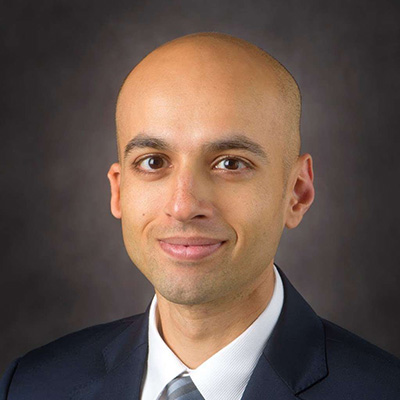 Gautam Mehta is an acting cross-disciplinary team leader in the Division of Oncology 2 at FDA and the lead for the Oncology Center of Excellence’s Project Confirm. Prior to joining FDA he was a member of the Neurosurgery faculty and Chair of the Research Committee at the House Ear Institute. He has published over 80 scientific papers and book chapters related to neuro-oncology and currently serves as the Scientific Liaison for Adult Neuro-Oncology at FDA’s Oncology Center for Excellence. He is an Associate Editor for the Journal of Neuro-Oncology, Chair of the Endolymphatic Sac Tumors/Audiologic Screening Guidelines Subcommittee for the VHL Alliance, and a member of the Executive Committee for the American Association of Neurological Surgeons/Congress of Neurosurgeons Section on Tumors. At FDA, he developed and leads Project Confirm, an initiative to increase the transparency around the Accelerated Approval program for oncology indications.
Gautam Mehta is an acting cross-disciplinary team leader in the Division of Oncology 2 at FDA and the lead for the Oncology Center of Excellence’s Project Confirm. Prior to joining FDA he was a member of the Neurosurgery faculty and Chair of the Research Committee at the House Ear Institute. He has published over 80 scientific papers and book chapters related to neuro-oncology and currently serves as the Scientific Liaison for Adult Neuro-Oncology at FDA’s Oncology Center for Excellence. He is an Associate Editor for the Journal of Neuro-Oncology, Chair of the Endolymphatic Sac Tumors/Audiologic Screening Guidelines Subcommittee for the VHL Alliance, and a member of the Executive Committee for the American Association of Neurological Surgeons/Congress of Neurosurgeons Section on Tumors. At FDA, he developed and leads Project Confirm, an initiative to increase the transparency around the Accelerated Approval program for oncology indications.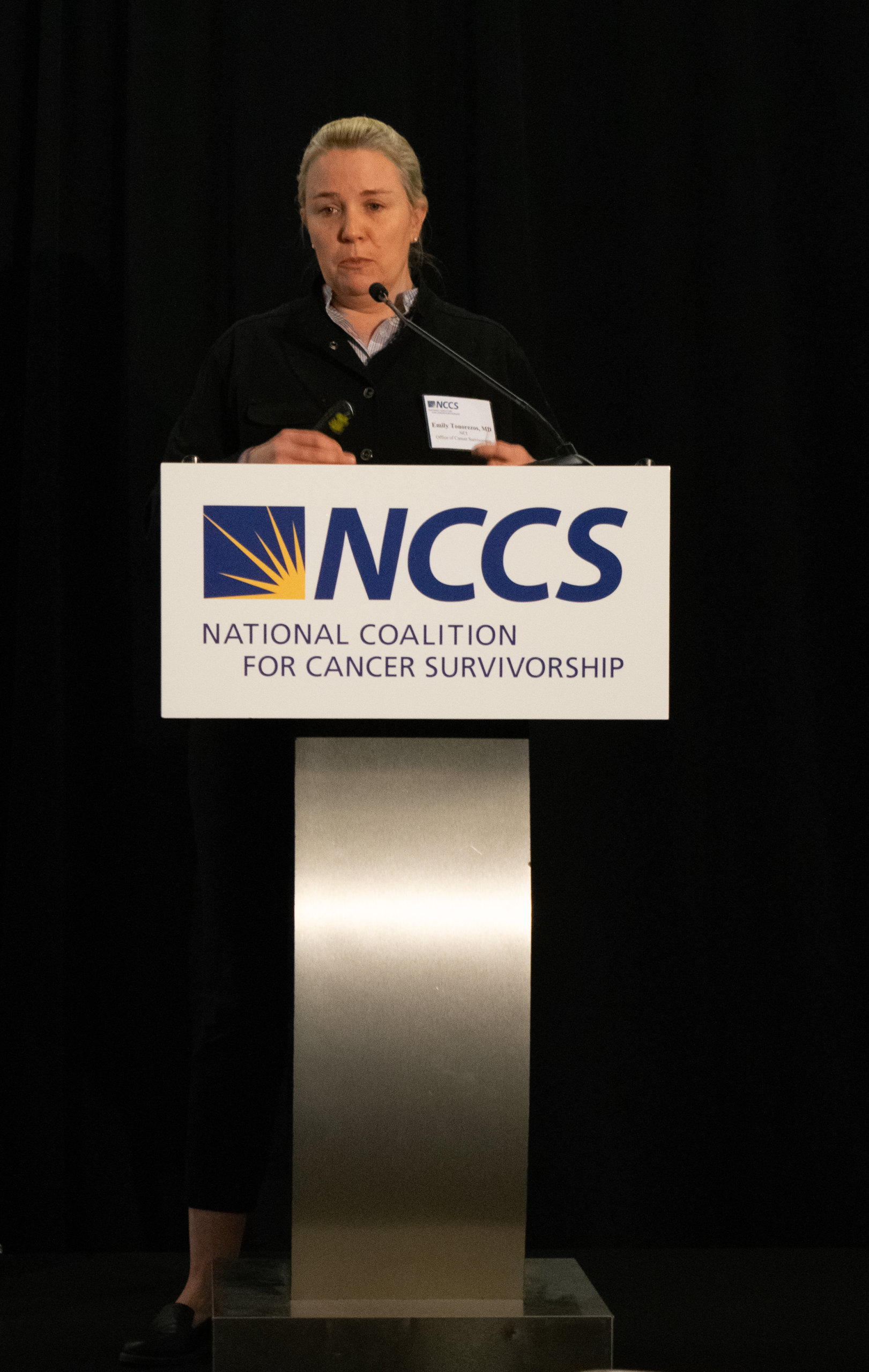 Dr. Emily Tonorezos, the National Cancer Institute’s (NCI) Director of the Office of Cancer Survivorship (OCS), delivered the closing keynote where she highlighted the important work of the OCS and the challenges of delivering quality cancer survivorship care. She emphasized the importance of improving survivorship care in the primary care setting since more than two-thirds of the 18.1 million cancer survivors in the US receive their care there. Dr. Tonorezos acknowledged that primary care providers are willing and able to take care of cancer survivors. However, there are challenges that are specific to cancer survivors who are treated in primary care. Some of the challenges primary care physicians encounter include identifying cancer history; accessing updated diagnosis, treatment history, and recommendations; identifying which provider is responsible for different components of care; communicating regularly with oncology providers and across different health systems; treating a growing number of survivors; and being aware of symptoms that may be related to a patient’s cancer diagnosis and treatment.
Dr. Emily Tonorezos, the National Cancer Institute’s (NCI) Director of the Office of Cancer Survivorship (OCS), delivered the closing keynote where she highlighted the important work of the OCS and the challenges of delivering quality cancer survivorship care. She emphasized the importance of improving survivorship care in the primary care setting since more than two-thirds of the 18.1 million cancer survivors in the US receive their care there. Dr. Tonorezos acknowledged that primary care providers are willing and able to take care of cancer survivors. However, there are challenges that are specific to cancer survivors who are treated in primary care. Some of the challenges primary care physicians encounter include identifying cancer history; accessing updated diagnosis, treatment history, and recommendations; identifying which provider is responsible for different components of care; communicating regularly with oncology providers and across different health systems; treating a growing number of survivors; and being aware of symptoms that may be related to a patient’s cancer diagnosis and treatment.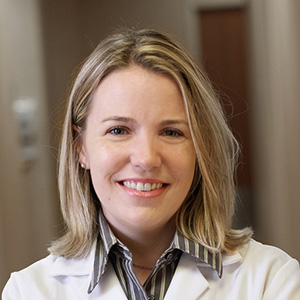 Emily S. Tonorezos, MD, MPH, serves as director of the Office of Cancer Survivorship, part of the Division of Cancer Control and Population Sciences at the National Cancer Institute (NCI). In this position, Dr. Tonorezos leads NCI’s efforts to address the challenges facing cancer survivors and their families — to prevent or mitigate adverse effects and to improve the health and well-being of cancer survivors from the time of diagnosis through the remainder of their lives.
Emily S. Tonorezos, MD, MPH, serves as director of the Office of Cancer Survivorship, part of the Division of Cancer Control and Population Sciences at the National Cancer Institute (NCI). In this position, Dr. Tonorezos leads NCI’s efforts to address the challenges facing cancer survivors and their families — to prevent or mitigate adverse effects and to improve the health and well-being of cancer survivors from the time of diagnosis through the remainder of their lives.


